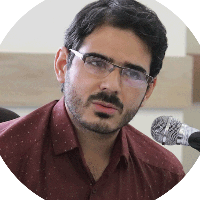The goals and functions of Islamic economics in the Qur'an, with emphasis on Allamah Tabatabai's views
For any science, apart from the issues and subjects that arise, there are goals and ultimates. Islamic economics is not excluded from this inclusive principle as a new science. Some of the experts in the field of Islamic economics have shown their goals, but so far no research has been done on the ultimate goals and functions of Islamic economics in the Qur'an, with emphasis on the views of Allamah Tabatabai. Therefore, in this article, by searching for ijtihdi and conceptual in the commentary system of Al-Mizan and other books and his works, as well as other works of Islamic thinkers, we seek to answer the question of what is the purpose and functions of Islamic economics in the Qur'an and from the perspective of Allāma Tabatabai? Findings of the research show that, firstly, considering the views of Allamah in credit and real sciences, it can be said that Islamic economics does not fully fit into any of the two categories, and it is with these two generality and peculiarity in some respect. Secondly, the documentary on Allameh's views can draw the attention of Islamic economics to the three ultimates of the final, intermediate, and preliminary levels, and the function is the intermediate goals which are the means to achieve the ultimate goals and are at the same level of objectivity and solidity, which is in fact the explanation, description and anticipation of the present situation (such as the theory of employment and the theory of the originality of society), the desirable situation (the economy of justice, the fair distribution of wealth, combined with growth, security and corruption, Beneficence of all), the pathology of the status quo and its analysis, and the prediction of the future (economic traditions in the Quran), as well as the ways of changing from the existing to the desirable (use of shari'a with reason, the simultaneous use of ethical capacity, jurisprudence and government).
- حق عضویت دریافتی صرف حمایت از نشریات عضو و نگهداری، تکمیل و توسعه مگیران میشود.
- پرداخت حق اشتراک و دانلود مقالات اجازه بازنشر آن در سایر رسانههای چاپی و دیجیتال را به کاربر نمیدهد.


